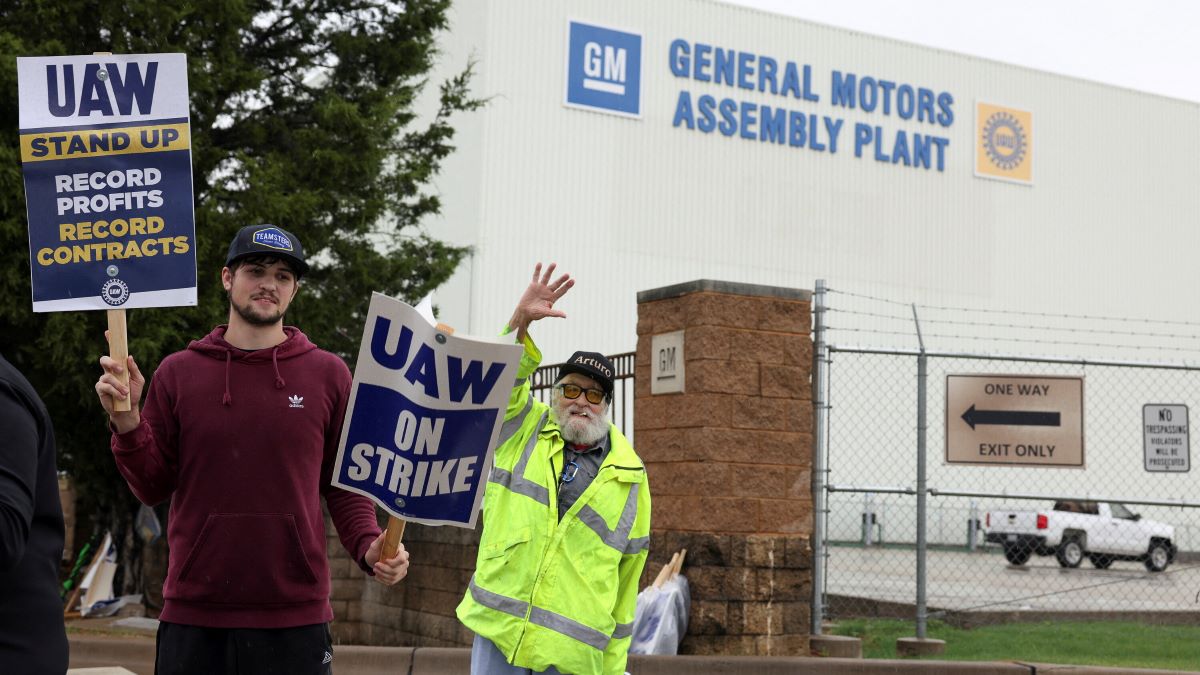General Motors anticipates that new labor agreements with the United Auto Workers (UAW) and the Canadian union Unifor will raise its expenses by $9.3 billion and add roughly $575 per vehicle over the duration of the agreements.
The majority of these cost increases are attributed to GM’s contract with the UAW, which is set to expire in April 2028.
Ratified earlier this month, this agreement features hourly wage increases of at least 25%, reinstatement of cost-of-living adjustments, enhanced profit-sharing payments, and other benefits.
The GM-UAW agreement was finalized after a period of tense negotiations involving personal attacks, political disputes, and approximately six weeks of targeted labor strikes by the union.
To manage these increased costs, GM, along with other Detroit automakers such as Ford Motor and Stellantis—both of which have also negotiated new labor deals—may consider passing some costs to consumers through higher vehicle prices, or alternatively, implement operational cuts, reduce headcount, and implement other cost-saving measures.
On Wednesday, GM revealed the anticipated impact of the labor agreements as part of a business update.
This update included the initiation of a $10 billion accelerated stock buyback program, an increase in its dividend, and the reinstatement of its full-year 2023 guidance.

GM reported that the targeted strikes by the UAW, which concluded in late October, resulted in a $1.1 billion loss in adjusted earnings before interest and tax (EBIT) for 2023.
The additional wages, bonuses, and other benefits related to the labor contract and the Unifor agreement are expected to add another $200 million in costs this year.
The $9.3 billion increase in labor costs is projected to be distributed as follows: $1.5 billion in 2024; $1.8 billion in 2025; $2.1 billion in 2026; $2.5 billion in 2027; and $1.1 billion from January to April 2028.
GM is working on a budget for the next year that will “fully offset the incremental costs of our new labor agreements,” according to a statement from GM CEO Mary Barra.
The anticipated increase in vehicle costs for GM includes $500 per vehicle in 2024. Last month, Ford, a competitor, estimated that its additional costs would range between $850 and $900 per vehicle assembled.
Ford CFO John Lawler mentioned that the company is striving to “find productivity and efficiencies and cost reductions throughout the company” to balance the additional costs and achieve previously announced profitability goals.
This effort includes the cancellation or postponement of $12 billion in electric vehicle investments. Ford is expected to provide further updates to investors regarding the cost impacts soon.
Stellantis, which was the second of the Big 3 U.S. automakers to reach a deal with the UAW, has yet to disclose the expected costs associated with its labor agreement.







Leave a Reply